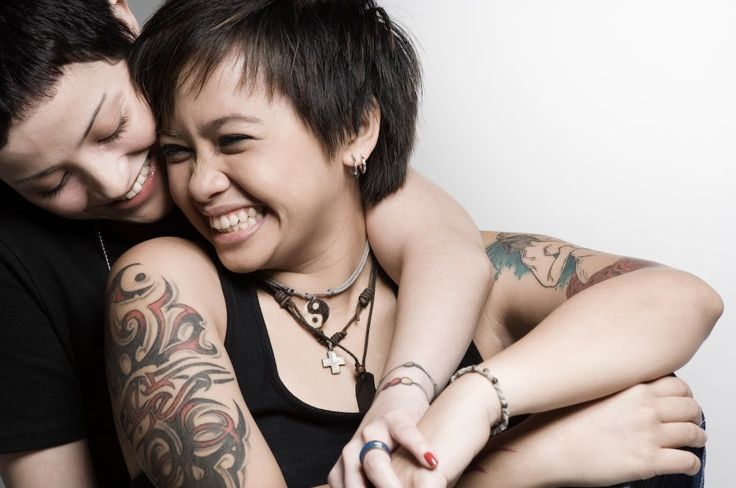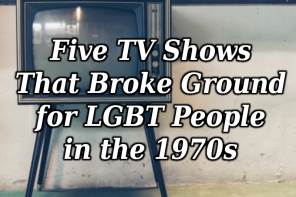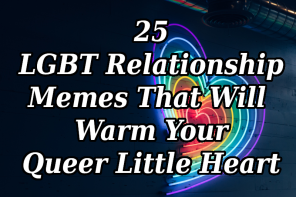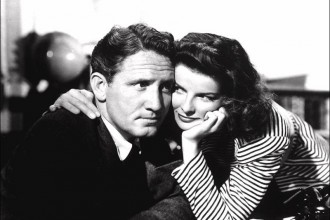During the 18th summer in my life, I decided it was time for a big change, a turning point that would not only be liberating, but could also improve many aspects in my life.
When you hear reports on the Philippines and the LGBT community from the media, you might get the impression that the country is very accepting of gays and lesbians. But I will tell you, as a lesbian living in the Philippines, that we are only tolerated and not entirely accepted. Life as an openly LGBT person can be a bit of a challenge. There are still milestones to cross before I can truly say that we are safe here. I wake up each morning thinking about the future of the community in this country.
I’m one of the lucky few to have a loving family who have eventually learned to accept me for who I am. But what about other gays and lesbians who have no choice but to remain hidden behind closed doors, where coming out is simply not an option? Wouldn’t it be nice to live in a society where you can be seen holding hands with the one you love, regardless of gender, without anyone judging you? Or to be able to walk down the aisle and be united in marriage before the eyes of God and your friends and family, feeling nothing but happiness because they are there to share the moment with you?
I grew up in a very traditional family with strict Catholic beliefs, which is very common in the Philippines. Catholicism was originally introduced to us by the Spaniards, and being under their rule for more than 300 years has made it the dominant religion of the country today. Catholicism has made it difficult for Filipino gays and lesbians, as the religion only recognizes marriages between a man and a woman. Accepting even the idea of a same-sex marriage for many will be a huge undertaking, and this was my fear as I was growing up.
I was 8 when I started to show signs of being different. A typical girl my age would play with Barbie dolls and cry whenever she fell in the mud. I was never bothered by getting dirty, and preferred playing with my brother’s remote control cars to dressing up my dolls. Honestly, I never saw myself as a girly-girl – I was already a bit of a “tomboy” compared to my sister. I remember my dad who was always scolding me because I was playing too rough and telling me to act like a little girl.
This went on for years, and when I was 13 years old, I fell head over heels for a beautiful and intelligent girl who was my sister’s classmate. I eventually told my sister because I knew she would understand, as she had friends and classmates who were like me. It wasn’t such a big deal for her and she told me that it would be alright.
I carried on living normally as I would, although I think my family seemed to know of my little secret. Then I thought of giving myself a deadline. I was still confused as to whether all this was just a phase that I would outgrow soon. I decided that if by the time I turned 18 I still had feelings for a girl, then I would come out to the rest of my family.
As soon as I entered college, temptation was all around me: I was at an all-girls school. One girl in particular caught my eye. I showed signs of affection until I won her heart. I could not stop myself from falling in love again. We shared many fun times together and cuddled to our heart’s content. It was pure bliss and I felt that she was the only girl who could make me feel this way, who could fill an emptiness that sometimes girls my age crave to fill. But it didn’t matter to me anymore that I was in love with a girl. I was happy and that’s all that mattered.
I was ready to tell my family because I’d been receiving encouragement from my sister and I had a girl whom I shared my hopes and dreams with. I told my family over one peaceful evening and they accepted me. I made it clear that I will most likely not get married to a man. I know they suspected for many years and maybe that’s the reason why they thanked me for finally letting them in.
The next step was to tell my friends, which worried my family a little because not everyone in society is ready to accept someone like me. I had already lost some friends along the way, who told me that I should be dating men and should eventually get married to one someday. I had nothing against them because everyone is different and has their own set of principles. It’s up to them if they can accept people who have different beliefs.
Sadly, being judgmental against gays and lesbians is still common in the Philippines today. It doesn’t matter what social class you belong to, as judgments exist whether you’re in the upper or lower social class. Men are seen as a family’s saving grace from poverty and are instantly shamed when they end up being gay.
On the other hand, families from the upper social classes see having gay or lesbian children as a result of failed parenting. The parents end up blaming themselves, which is not psychologically healthy for them or their child.
Further, being in a country that is poverty-stricken, you can guess that there are other “more important” societal issues here, making the LGBT community here wait longer for same-sex marriage to be legal. We’re still far from any sort of progress, unlike many Western countries, where unions between same-sex couples are already recognized by the government.
While I am happy to have been born here because I am surrounded by very light-hearted and warm people, it still saddens me to think that my countrymen can only tolerate and not accept issues concerning the LGBT community.
We have lesbian-specific parties every month, which are like those held at The Planet in the show The L Word, a pretty popular series among the lesbians here. We host Pride Marches like our Western counterparts. We have centers for gays who have been infected with HIV. But all those things remain unsupported by the Catholic Church and even by the common Filipino. Even TV shows and movies that are centered around LGBT issues cannot be freely bought or watched here, unless you order them online. The Catholic Church frowns upon these themes, thinks it is unbecoming of a person, and even goes as far as saying that these are immoral.
All these added to the many reasons why I stopped going to church for a while. I felt unwelcome, like the rest of the members of the LGBT community, especially when the homilies during mass spoke highly and favorably about the love between a man and a woman, but not between two men or two women.
The Philippines is far from ready to legalize same-sex marriage and we still can’t see a very bright future for the LGBT community here. The only weapon we have against discrimination is strength and love, which helped me fight through.
I also realized that you cannot run away forever, and that is why I started going to church again, together with my girlfriend. I had to face society no matter what they thought. Turning a deaf ear towards the criticism and just doing the right thing was something that made people see me in a whole new light. I did not judge anyone despite of what I went through.
My friends who stood by me asked me countless of questions on how to deal with their own problems because they saw my strength. But it was all thanks to their love and support, and that has been the best gift for me.





